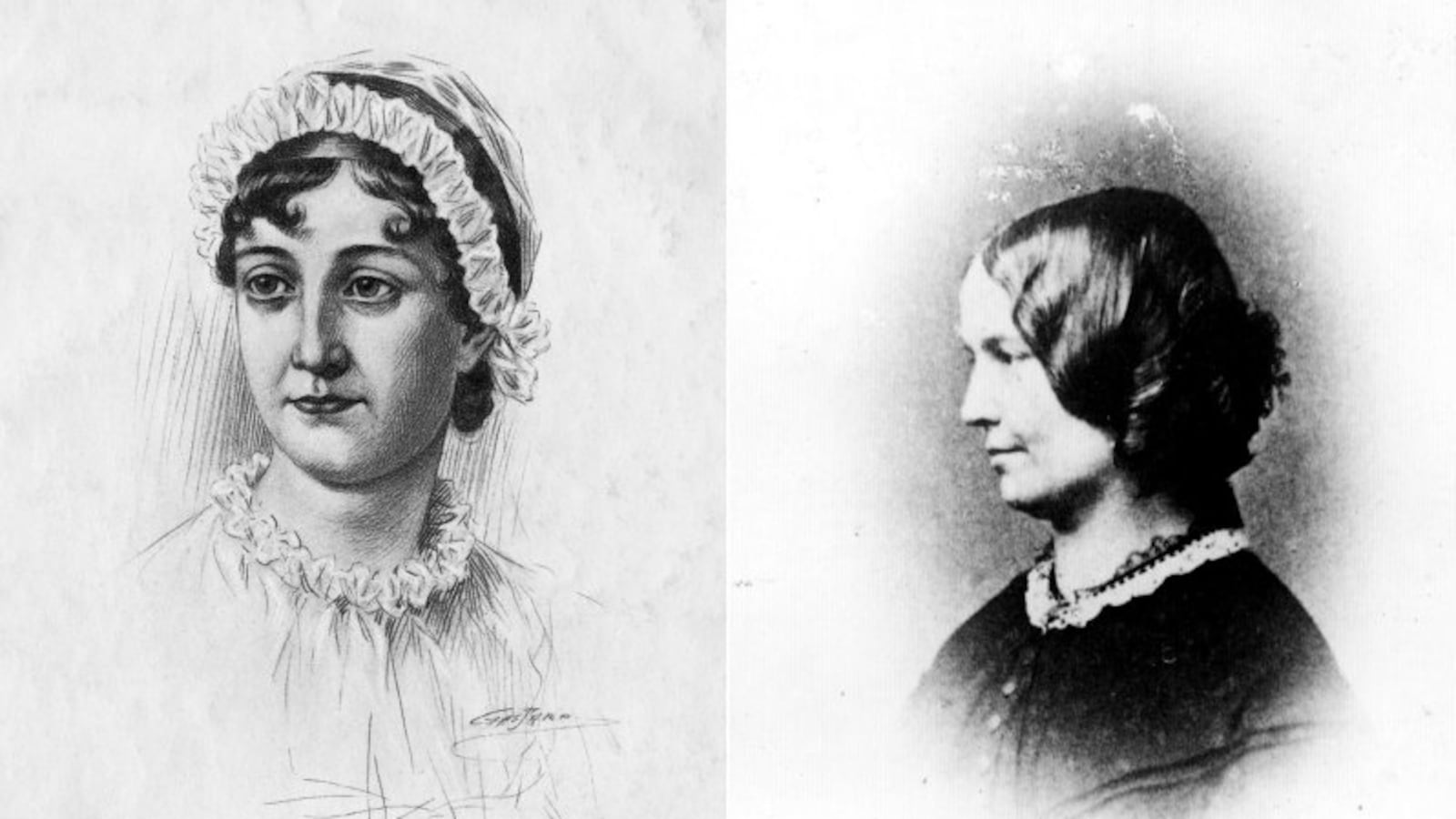It’s a fascinating oddity of literary history that the great Victorian novelist of romantic love, Charlotte Brontë, despised that other great British chronicler of love, Jane Austen, and could not quite comprehend why Austen was valued so highly by critics in Brontë’s time. This seems counterintuitive: after all, both appear regularly at the top of lists of favorites compiled by readers, especially female readers, who love classic novels and all things romantic.
Brontë’s view of Austen startled me when I first read of it. Until I learned this, I had grouped the two together as if they had a natural affinity. After all, both were of primary importance in the British literary tradition as major female novelists; both were influential in inventing the romantic novel as a modern genre; and both wrote love stories that engaged issues of money, class, and social prestige. But, in Charlotte Brontë’s view, their similarities were not as significant as their differences. Moreover, for Brontë, the disparity between them was essential, speaking to the very nature of their literary purposes.
As it happens, Charlotte Brontë’s perception of Jane Austen not only reveals much about Brontë herself but also highlights an important change in the evolving definition of romantic love in Western culture. Furthermore, this change foreshadows both D. H. Lawrence and our contemporary understanding of that malleable term “love,” a shift in meaning to which, I would say, Charlotte Brontë herself substantially contributed.
We know about Brontë’s opinion of Austen chiefly from her correspondence in 1848 with the respected critic George Henry Lewes, later the companion of another great Victorian novelist, George Eliot. When he wrote to give Brontë comments and advice, she took his critique of her novel very seriously. Jane Eyre had received a good review from Lewes, but he wanted to underline a fault in the novel, the moments of melodrama in it that he called “suited to the circulating library” (not a compliment), and he held out Austen as a model of calm and balanced wisdom achieved through a more naturalistic style. When Lewes praised Austen, whom Brontë had neglected to read, she went to some trouble to obtain Austen’s masterpiece, Pride and Prejudice.
In Brontë’s own words to Lewes, “I got the book and studied it. And what did I find? An accurate daguerreotyped portrait of a common-place face; a carefully fenced, highly cultivated garden, with neat borders and delicate flowers—but no glance of a bright vivid physiognomy—no open country—no fresh air—no blue hill—no bonny beck. I should hardly like to live with her ladies and gentlemen in their elegant but confined houses. These observations will probably irritate you, but I shall run the risk.”
For Brontë, something essential was lacking, an element she later called “what throbs fast, full, though hidden, what the blood rushes through.” This, of course, is the heart. Brontë resented Lewes’s praise of Jane Austen’s fiction because she interpreted his admiration for Austen as a requirement that an author, to be worthy of esteem, must eliminate the life beneath the surface, the full-blooded life of experience, including the dark experience of passionate love, while privileging the carefully worked appearance of social arrangements she saw in Austen. “The Passions are perfectly unknown to her,” Brontë concluded in a letter of 1850. In effect, Brontë was accusing Austen of being superficial, not truthful, about passion, in spite of Austen’s growing reputation as a social realist.
Brontë’s scathing evaluation of Austen has a particular irony in view of the popular filmed version of Pride and Prejudice (2005), starring the beautiful Keira Knightley as Elizabeth Bennet. The irony I refer to lies in the way the film revises and sells the original love story of Augustan balance and harmony as a romanticized version of the original: one prominent television ad screamed, “Romance hasn’t looked this sexy in years!” In the New Yorker, the reviewer Anthony Lane put it this way: “What has happened is perfectly clear: Jane Austen has been Brontëfied.” Lane was no doubt referring to the quality of wildness that repelled some of the contemporary critics of Jane Eyre and Wuthering Heights. But what exactly does that imply about what Charlotte Brontë, and the Brontës in general, have contributed to our own definition of love and romance? And is that modern idea the same as the meaning of romantic love to Charlotte Brontë?
The answer to the latter question, I would say, is not quite. But what I will claim for Charlotte Brontë is that she very deliberately altered the term “love” as it was understood in her time, and particularly as it relates to women, in a way that has influenced our society far beyond her own modest expectations and, perhaps, beyond her intentions.






